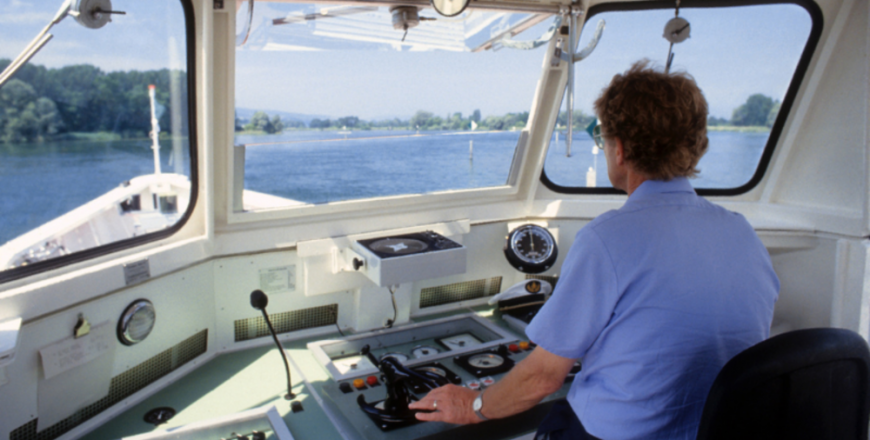
On a boatmaster apprenticeship course, you’ll help ensure the safe operation and passage of a vessel.
You may be the captain of a small tourist boat or work for a large freight operator responsible for safely delivering freight up the river to a port. You will be in control of the commercial passenger or non-passenger (freight and ‘other service’) vessels, as well as all crew members.
Working with other boatmasters, crew, and passengers, as well as other boats and emergency services, might be part of your daily responsibilities. As a result, you will spend a significant amount of time on the water, and you should be prepared to operate outdoors in all weather situations.
A boatmaster is responsible for the integrity of the vessel, which covers everything from the equipment on board to the mechanics. You will plan the cruise, operate the boat, and ensure safe docking and anchoring at all times.
What you’ll learn
On a boatmaster apprenticeship course, you’ll learn to:
- Assume responsibility for the vessel’s safe and clean sailing, as well as the safety of all people on board, including safe entry and exit points.
- Maintain and operate lifesaving and firefighting equipment, as well as give emergency first aid and, if required, interact with the coastguard during a medevac.
- Handle a vessel in a densely populated region, including locks near weirs, bridges, and other permanent infrastructure, in tidal and non-tidal scenarios.
- Carry out and prioritise deck tasks while adhering to the norms and standards of the company. Ensure that vessels are operated and maintained in a safe and seaworthy condition following relevant law and business policy and operated safely following applicable regulatory standards.
- Record relevant work and statutory information on the vessel and organisational IT systems using basic IT skills.
- Collaborate with others by acting as a team player while working as a bigger team.
- Develop work connections and performance management abilities to meet high standards regularly. Build, manage, and lead your team’s onboarding and their work relationships and performance management skills to help them produce consistently high standards.
- Effectively and professionally interact with all levels of the organisation [company], whether on land or at sea.
- Plan, discuss and lead procedures in the event of an emergency.
- Use mooring systems and equipment appropriate for the current tidal, weather, and vessel design considerations.
- Select an acceptable anchoring method and carry out the procedure as indicated. Using an anchor(s) to assist with manoeuvring.
- Prepare for meteorological variables that might jeopardise a commercial vessel’s safe operation and passage.
- Use depths, air draughts, vessel size, and tide estimations to navigate shallow and height-restricted navigations in tidal seas.
- Provide prompt assistance to another vessel in trouble.
- Adjusts the trip plan of the vessel under their command to meet safety, scheduling, and economic objectives.
Entry requirements
You’ll usually need:
- Depending on the employer, but likely GCSEs or equivalent qualifications or relevant experience.
- Apprentices without level 2 English and maths will need to achieve this level before taking the end-point assessment.
Assessment methods
The End Point Assessment consists of two distinct assessment methods:
- Practical Observation
- Professional Discussion
Duration, level, subjects and potential salary upon completion
- Duration: 24 months
-
Level: 3 – Advanced Apprenticeship
- Relevant school subjects: Geography
- Potential salary upon completion: £20,000
Apprenticeship standard
More information about the Level 3 Boatmaster Apprenticeship standard can be found here.
Apprenticeship end point assessment
For more information about the End Point Assessment Process, please read the Institute of Apprenticeships’ information page.
